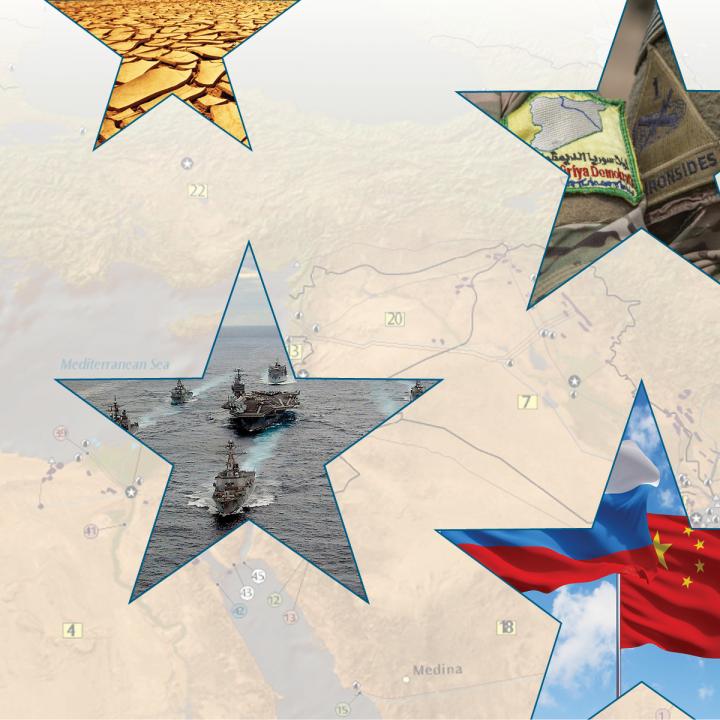Michael Eisenstadt

To meet future security challenges, the United States will need to reassess how it deters adversaries and conducts security force assistance in the region, while becoming more proficient in gray zone operations and information activities. Addressing cultural factors and trends such as climate change will require solutions outside the traditional national security toolkit.
In the ninth in a series of TRANSITION 2021 memos, Michael Eisenstadt describes how even with a reduced military footprint, the United States can secure its interests in the Middle East while better positioning itself on the global stage.
Since taking office, the Biden administration has declared that it will right-size the U.S. military presence in the Middle East and end America’s involvement in the region’s costly “forever wars” in order to focus on Great Power competition. To meet future security challenges in the Middle East, however, the United States will need to rethink how it deters adversaries and conducts security force assistance, while becoming more proficient in gray zone operations and information activities. Simultaneously, to address the structural and cultural factors that produce regional instability, along with destabilizing trends such as climate change, the United States must look outside the traditional national security toolkit.
“The challenge,” the author explains, “is to develop new strategies and operational approaches that employ the military and other instruments of national power in different, more economical, and more effective ways as the attention of policymakers and U.S. force deployments increasingly shift to the Indo-Pacific region and elsewhere.”
TRANSITION 2021 memos by Washington Institute experts address the broad array of issues facing the Biden-Harris administration in the Middle East. These range from thematic issues, such as the region’s strategic position in the context of Great Power competition and how to most effectively elevate human rights and democracy in Middle East policy, to more discrete topics, from Arab-Israel peace diplomacy to Red Sea security to challenges and opportunities in northwest Africa. Taken as a whole, this series of memos will present a comprehensive approach for advancing U.S. interests in security and peace in this vital but volatile region.
No comments:
Post a Comment